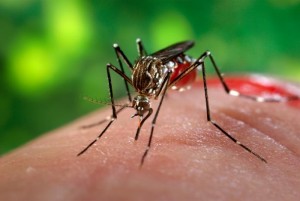The southwestern Taiwanese city of Kaohsiung has seen an epidemic of dengue fever this year, which has now eclipsed 6,000 indigenous cases, including 55 cases of the more severe dengue hemorrhagic fever, according to a Focus Taiwan News Channel report today.

At least six deaths due to dengue have been reported in Taiwan to date.
The Kaohsiung City Bureau of Health says the city has the country’s highest density of Aedes aegypti — the principal vector of dengue.
The Taiwan Centers for Disease Control (Taiwan CDC) stresses that as we have entered the dengue season and four types of dengue virus have occurred in southern Taiwan. People who have been previously infected with one or more types of dengue virus and those with chronic diseases such as high blood pressure, diabetes and liver disease or cancer are strongly advised to pay additional attention to dengue prevention and take personal precautions against mosquito bites to prevent dengue fever and consequently dengue hemorrhagic fever.
In addition, Taiwan CDC reminds the public to reinforce the removal of vector-breeding sites and ensure the cleanliness of the environment as well as take precautions against mosquito bites in order to minimize the risk of dengue infection.
Dengue fever is an infectious disease carried by mosquitoes and caused by any of four related dengue viruses. This disease used to be called “break-bone fever” because it sometimes causes severe joint and muscle pain that feels like bones are breaking.
People get the dengue virus from the bite of an infected Aedes mosquito. It is not contagious from person to person. For more infectious disease news and information, visit and “like” the Infectious Disease News Facebook page
There are three types of dengue fever in order of less severe to most: the typical uncomplicated dengue fever, dengue hemorrhagic fever (DHS) and dengue shock syndrome (DSS). Looking for a job in health care? Check here to see what’s available
The World Health Organization (WHO) estimates there may be 50–100 million dengue infections worldwide every year. However, new research from the University of Oxford and the Wellcome Trust, using cartographic approaches, estimate there to be 390 million dengue infections per year worldwide.

